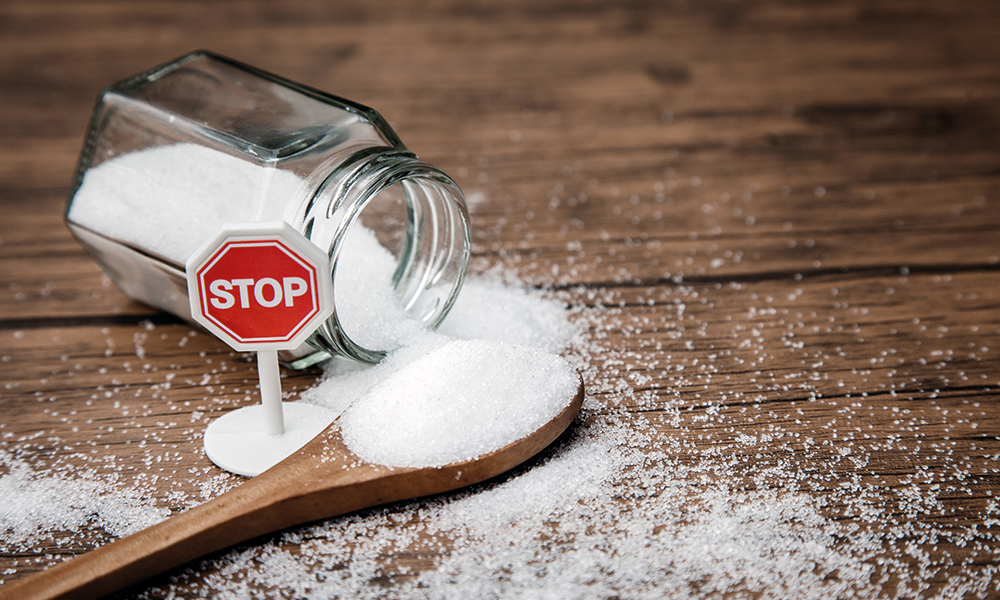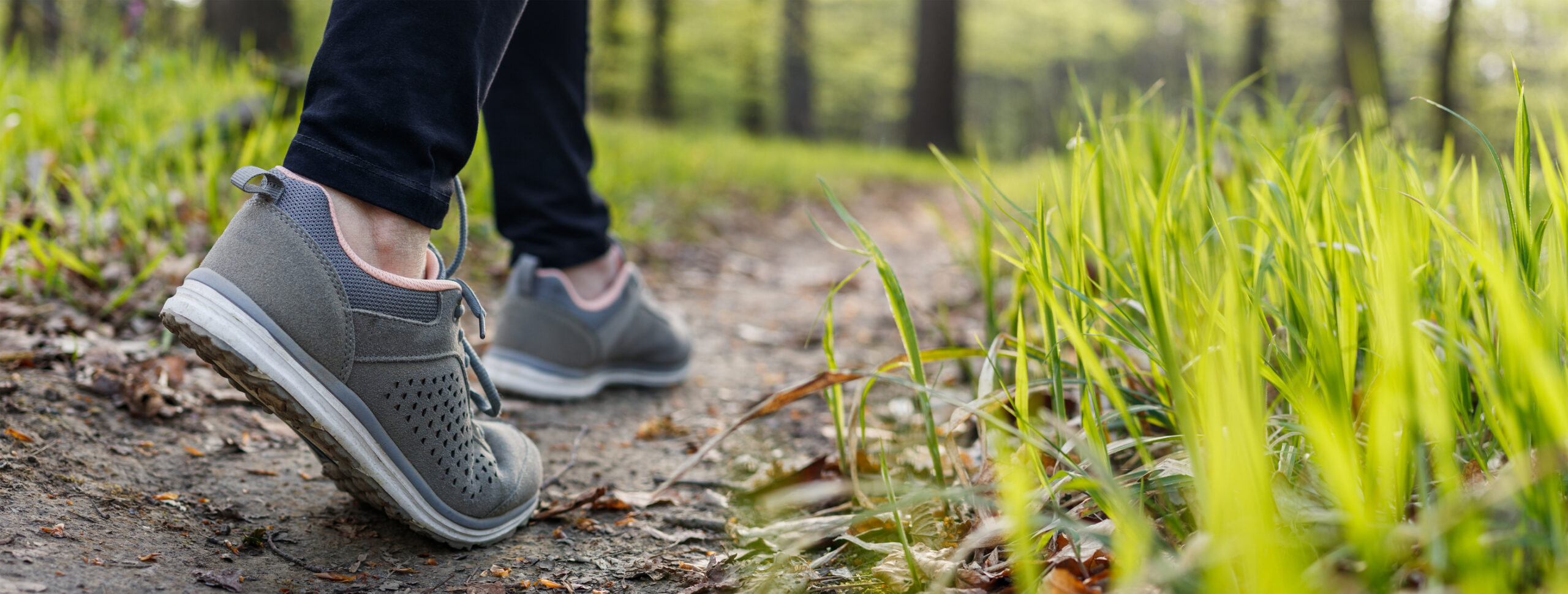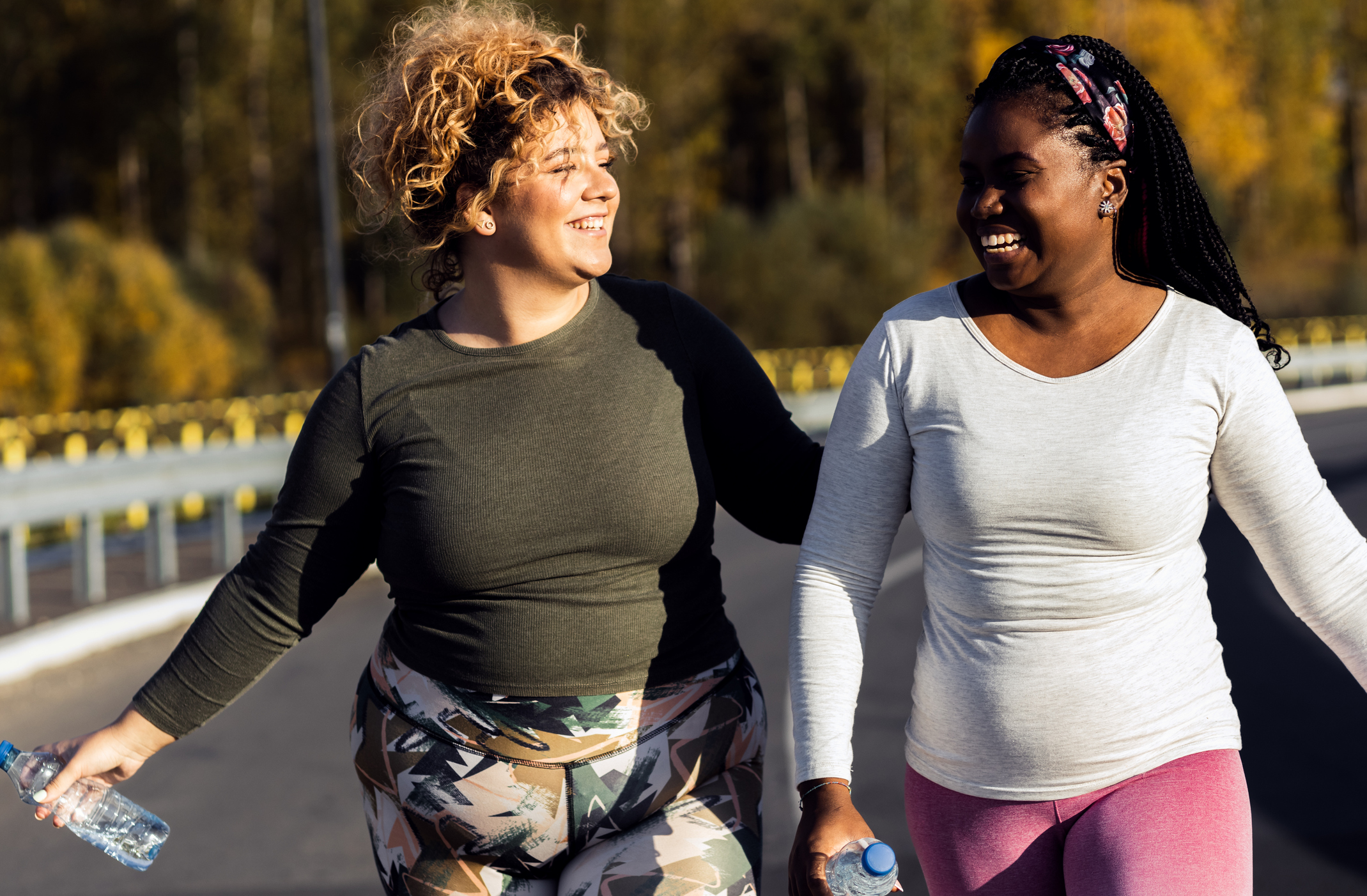Sugary, syrupy drinks are loaded with free sugars. They cause havoc with our oral hygiene and blood sugar levels and can ultimately lead to serious health conditions. Eek.
The World Health Organisation (WHO) recommends ‘free sugars’ should make up less than 10% of our total daily diet, however consuming less than 5% offers even more health benefits. This means we should aim for less than 25g a day, with 50g a day as our maximum.
Free sugar includes all processed sugar that has been added to a product, as well as the natural sugar found in fruit juices, smoothies and honey that are freed from their fibre counterparts during processing. The sugar in fruit juice is natural but the form it takes isn’t. Whole, fresh fruit contains no free sugars but once processed it loses fibre and phytonutrients. The sugar content is higher than if we were to eat the fruit in its natural form. For example, one glass of apple juice contains the sugar of 4-5 apples. The effect on the body from eating 1 fresh apple is quite different to drinking the juice of 5 apples. We need to be mindful of our intake.
What does 25g of sugar look like?
It’s a good question, and what have sugary drinks got to do with it? Well, it’s not hard to understand how a sugary cake can be filled with sugar, but it’s a bit harder to comprehend that so much sugar can be packed into an innocent looking glass of fizzy pop or juice. Here’s an idea of what’s in some popular drinks:
- Water 0g / 0 cals
- Red Bull 250ml can, 27.5g / 135 kcal
- Ribena 250ml juice box, 11.5g / 52 kcal
- Coca Cola 330ml can, 35g / 142 kcal
- Lucozade sport 500ml bottle, 44g / 330 kcal
- Starbucks Caramel Frappuccino 350ml (tall), 32g/ 261 kcal
You can see that by reducing or cutting out sugary drinks altogether, we can avoid a lot of free sugar. In the UK, we consume just over 10% of our calories from free sugar, one of the highest rates in Europe. It’s no great surprise that we also have some of the highest incidences of diabetes type 2 and heart disease as well.
Sugary drinks are energy dense and most are nutrient sparse, so we stand to benefit from eliminating them. Diet and sugar free sodas are better in terms of their sugar content but the jury is still out as to their effect on our health, though they can be a useful stepping stone helping people move towards having less sugar in their drinks.
Water truly is the best thing for our bodies to stay hydrated but it can be a bit boring. Add interest and flavour with the following additions:
- Sparkling water – bubbles always adds a bit of vava voom
- Citrus slices
- Berries
- Cucumber – slices or ribbons made with a vegetable peeler
- Mint or other fresh herbs
- Unsweetened tea, coffee, fruit and herbal teas



